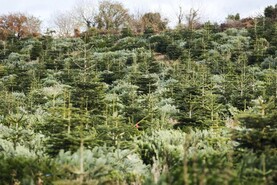As restaurants close all over the country, the reaction of IBEC, by far the most important business lobby group in the country, has been remarkable.
It has developed and published a comprehensive policy on what it calls “The Experience Economy”.
It is a novel concept, but digging down into details, it could be talking about farming. To put it in context: the success of the Irish economy has been attributed to the enormous wave of multinational investment. Many of these companies have incredibly strong market positions on a worldwide basis, with balance sheets, intellectual property and profits to match.
But how relevant are their operating conditions to the normal indigenous Irish retailer, restauranteur or farmer? In the aftermath of Leo Varadkar’s resignation as Taoiseach, there were comments made that he was too absorbed in focusing on these atypical companies and forgetting about what actually makes Ireland tick.
In it’s thoughtful analysis of what it terms Ireland’s dynamic, diverse and distinctive business model, IBEC has done a service in pinpointing the threats to what makes Ireland “a great place in which to live, work and invest”. In its submission to Government, IBEC has come up with the novel idea of a “competitiveness charter”. For its members firms, IBEC talks about the ongoing rise in State-imposed labour market costs.
Farmers are not exempt either, as direct employers or as suppliers to agri food companies
While these increases in minimum wages, extra pension obligations, etc, may be easily afforded by larger hi-tech companies, it is clear that many smaller companies operating in highly competitive markets cannot afford them.
Farmers are not exempt either, as direct employers or as suppliers to agri-food companies.
These companies sell our produce on international markets and their extra State imposed costs are inevitably passed back to us, their suppliers.
The concept of a competitiveness charter which would measure the farm cost base here in Ireland in comparison with other countries should be seriously considered, as it could then be used by farmers as a logical basis for increased levels of State aid.
The IFA in discussions with Government could point out the existence of the FAPRI unit (Food and Agricultural Policy Research Institute) in Teagasc as having the capacity to undertake the role.






 This is a subscriber-only article
This is a subscriber-only article










SHARING OPTIONS: